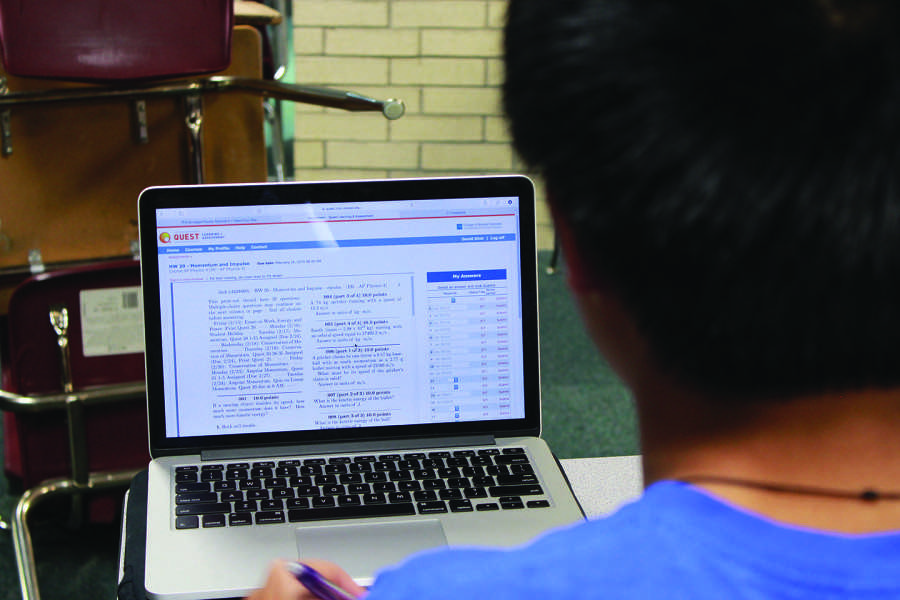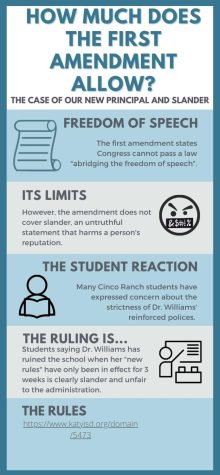My computer ate my homework
Junior David Dinh works on his “Quest” physics homework. Trouble with access can make these assignments a burden.
March 17, 2015
Technology is a revolutionary learning tool. Through the Internet, we have been able to explore ideas and connect with people about interests that might have never developed otherwise. Twitter keeps us in touch with our world, Snapchat gives us a window into other’s lives, blogging and photo platforms allow us to share skills, ideas and innovations instantly and constantly. I believe that computers and the Internet are the greatest education portal ever created.
But should teachers use this resource for post-class instruction and assignments?
Logic would say yes – we live in a world of technology and communication, so why not utilize it? However, as our school and many others begin moving toward a more web-based homework system, it is becoming apparent that there are still several issues that need to be resolved.
The most prevalent of these issues is access. In many of my classes, teachers use Facebook and other social media sites to communicate information they forget to share in class with students. However, the school blocks Facebook on their Wi-Fi so I cannot see anything posted during the day or after school until it is too late. At this point, I’ve now missed a changed due date or quiz announcement that students with 4G or early release have been able to see. Access is also difficult if you do not own or cannot use a device that connects to the Internet. If students cannot afford their own personal computers to do assignments, they must use library computers, which are only available for very brief times before and after school (an even greater challenge if one rides the bus) or if they skip lunch entirely.
Access challenges aside, web homework and textbook user interface is often poorly developed and difficult to access. One of my textbooks is online, but it cannot be loaded onto a phone and is constantly crashing my computer in the middle of work. This wastes my already limited time, as I must reboot and find my place again, then recover all lost files. Because such a strong Wi-Fi connection is required to access these websites, I also cannot read or do work during holidays spent away from home and must rush to finish my assignments the night before school resumes.
Despite the continuing challenges of using the Internet as an out-of-class learning and communication tool, the benefits of online homework are immense. There are many resources and different types of assignments that allow for inter-group discussion and collaboration on projects that would not have been possible before. Canvas’ discussion boards in particular lets students explore and communicate about a topic easily, which is much more educationally efficient than classroom discussions, where the primary topics of conversation tend to be more about a concert and less about the Kreb’s cycle.
Technology and the Internet are used in everything from the workplace to world politics, and to stay relevant, schools must adapt to how information is received and communicated. By accepting rather than restricting the influence of the Internet on education, I believe schools are moving in the right direction of preparing students for the workforce.
If this can be achieved along with universal access and better resource technology, integrated digital and classroom education could be a very bright future for Cinco Ranch and all other public schools.




![Tips for Studying Finals [INFOGRAPHIC]](https://crhscountyline.com/wp-content/uploads/2022/12/Studying-for-Finals-475x267.jpg)








